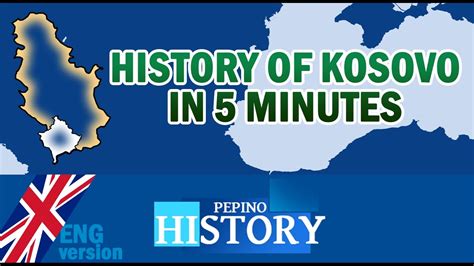Explore the history of Barbados from colonization to modern era. Learn about the impact of sugar industry, arrival of African slaves, British rule, and path to independence.
Colonization of Barbados
Contents
Barbados, a Caribbean island located in the Lesser Antilles, has a rich history that dates back to the early 16th century when it was first discovered by the Spanish. However, it was not until the early 17th century that the island was colonized by the English.
The colonization of Barbados began in 1627 when the English arrived and established a permanent settlement on the island. The English settlers quickly set up a profitable sugar industry, which led to an influx of African slaves to work on the sugar plantations.
During the early years of colonization, Barbados went through a period of rapid expansion and development, with the island becoming a major trading hub for sugar, rum, and molasses. The influx of wealth from the sugar industry transformed Barbados into one of the most prosperous colonies in the Caribbean.
However, the prosperity of Barbados came at a great cost to the enslaved African population, who suffered under harsh working conditions and brutal treatment from their English masters. The legacy of slavery and the impact of colonization continue to shape the history and culture of Barbados to this day.
Impact of the sugar industry
The impact of the sugar industry on the history of Barbados cannot be overstated. The introduction of sugar cultivation in the early 17th century transformed the island’s economy and society, leading to profound changes in its demographic makeup, labor practices, and political landscape. As Barbados transitioned from tobacco and cotton production to sugar, the demand for labor soared, driving the importation of enslaved Africans on a massive scale.
Additionally, the sugar boom fueled the rise of wealthy plantation owners, known as the plantocracy, who held significant political and economic power on the island. This concentration of wealth and influence further exacerbated social inequality and racial tensions, shaping the island’s development for centuries to come. The establishment of large-scale sugar plantations also led to extensive environmental impact, as forests were cleared and land was reshaped to accommodate the expansion of the industry.
Furthermore, the reliance on slave labor to sustain the sugar economy contributed to the perpetuation of a brutal and dehumanizing system of exploitation, which has left a lasting legacy of trauma and suffering in Barbados. The effects of the sugar industry reverberate through the island’s history, influencing its cultural heritage, social dynamics, and economic structures to this day.
In conclusion, the impact of the sugar industry on Barbados has been profound and far-reaching, shaping the island’s history in significant ways. From the influx of enslaved Africans to the consolidation of power among the plantocracy, the legacy of sugar cultivation continues to resonate throughout the modern era, underscoring the enduring consequences of this pivotal historical development.
Arrival of African slaves
When we talk about the arrival of African slaves in Barbados, we are delving into a dark and painful chapter of the island’s history. The first African slaves arrived in Barbados in the early 1620s, brought by English colonists to work on the burgeoning sugar plantations. The conditions they endured were brutal, with long hours of labor in the fields and harsh treatment by their masters.
The impact of the sugar industry on the demand for labor led to the exponential increase in the arrival of African slaves during this period. African men, women, and children were forcibly taken from their homes and transported across the Atlantic in inhumane conditions, leading to unimaginable suffering and loss of life.
It is important to acknowledge the enduring legacy of this dark period in Barbados’ history and to recognize the resilience and strength of the enslaved African people who were integral to the island’s development. The repercussions of the arrival of African slaves are still felt in Barbados today, and it is crucial to confront and examine this aspect of the island’s past in order to fully understand its present and work towards a more just and equitable future.
Barbados under British rule
Barbados came under British rule in 1625 when the English ship, the Olive Blossom, arrived on the island. This marked the beginning of the island’s colonization by the British. The British influence on Barbados was significant, shaping the island’s economy, society, and politics for centuries to come.
During this time, the British implemented a system of plantation agriculture, primarily focused on the production of sugarcane. The large-scale cultivation of sugarcane led to the establishment of a slave-based economy, with African slaves being imported to work on the plantations. The British also introduced a system of governance that favored the interests of the plantation owners, further consolidating their control over Barbados.
Under British rule, Barbados became one of the wealthiest colonies in the British Empire due to its profitable sugar industry. The island’s economy was heavily reliant on the production and export of sugar, which contributed to the accumulation of wealth for the British plantation owners and merchants.
British rule also brought about significant social and cultural changes on the island. The majority of the population in Barbados consisted of African slaves who were subjected to harsh living and working conditions. The British also exerted influence over the island’s legal system, education, and religious practices, further shaping the social and cultural fabric of Barbados.
Despite the economic prosperity experienced under British rule, the social and political inequality, along with the harsh treatment of the enslaved population, led to numerous uprisings and rebellions on the island. These movements ultimately played a crucial role in shaping the future of Barbados and paving the way towards independence from British rule.
Independence and modern era
After more than 300 years under British colonial rule, Barbados finally gained its independence on November 30, 1966. This marked a significant turning point in the history of the island, as it was now able to govern itself and determine its own future. With independence, Barbados entered into the modern era, focused on development and growth as a sovereign nation.
Following independence, Barbados saw rapid economic and social progress. The country diversified its economy, moving away from its reliance on the sugar industry and expanding into new sectors such as tourism, manufacturing, and financial services. This shift brought about significant improvements in the standard of living for the Barbadian people.
During this time, Barbados also emerged as a global leader in social and political development. The country implemented progressive policies in areas such as education, healthcare, and gender equality, earning international recognition for its efforts. Barbados became known for its stability, democracy, and commitment to human rights.
In recent years, Barbados has continued to make strides in its development. The government has focused on sustainable practices, environmental conservation, and renewable energy initiatives. The country has also established itself as a hub for international business and finance, attracting investment and creating new opportunities for its citizens.
As Barbados looks to the future, it remains committed to its independence and modernization. The island continues to pursue growth and development while preserving its unique culture, heritage, and natural beauty.













